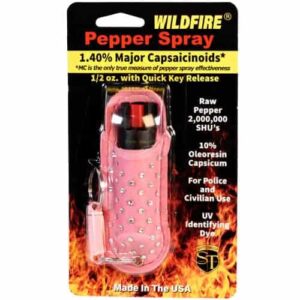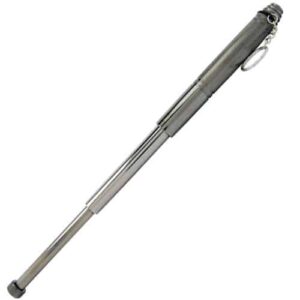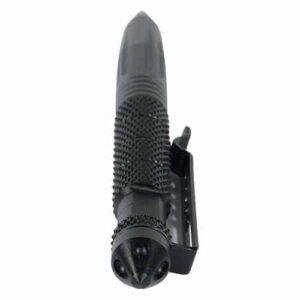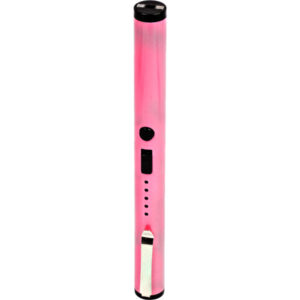Imagine a magical deterrent that can protect your beloved plants from pests, and is natural, non-toxic, and incredibly effective. This may sound too good to be true, but ‘Pepper Spray For Plants’ is indeed an innovative solution painted in that fabric of reality! This article sheds light on the effectiveness of using pepper spray as a novel pest control method that ensures your plants stay healthy, while also keeping the environment safe from harmful chemicals. Prepare for a fascinating journey as we unearth the benefits, applications, and preparation methods of this unique tool for your gardening arsenal.

Table of Contents
ToggleWhat is Pepper Spray for Plants?
The world of plant care is ripe with creative strategies for fostering healthy growth and mitigating common challenges such as pests and disease. One particularly innovative method that may surprise you is the use of pepper spray. No, not the self-defense tool — a different kind of pepper spray specifically designed for protecting our green friends.
Definition of Pepper Spray for Plants
When we talk about pepper spray for plants, we’re referring to a solution created from hot peppers. This spray is an effective, natural deterrent against common plant pests as it provides a spicy kick. It’s not a lethal pesticide but rather a natural repellent that keeps unwanted guests at bay.
How is Pepper Spray for Plants Different from Regular Pepper Spray?
Despite the similar names, plant pepper spray greatly differs from the type used for personal defense. While both contain capsaicin from peppers, personal defense pepper spray is much more concentrated and includes additional chemicals that can harm plants. Plant pepper spray, however, is diluted and crafted specifically to protect without harming your plant’s health.
Benefits of Pepper Spray for Plants
Pepper spray for plants offers numerous benefits, making it a brilliant addition to your gardening toolkit.
Protection Against Insects and Pests
With its potent capsaicin content, pepper spray wards off several types of pests, including aphids, spider mites, and whiteflies. The hot taste discourages these pests from feasting on your plants.
Natural Alternative to Chemical Pesticides
If you’re seeking a more natural and eco-friendly route for your plant care, pepper spray is a fantastic choice. It’s free from the synthetic chemicals often found in traditional pesticides and is thus a safer choice for both you and the environment.
Can Enhance Plant Growth
When sprinkled around the base of your plants, pepper spray can actually stimulate growth. The capsaicin can help promote healthy root development as it has the power to energize the plant cells that stimulate growth.
Easy to Use and Apply
One of the great things about pepper spray for plants is how simple it is to use. With just a few squirts, you can provide your plants with a whole host of benefits. And whether you choose to purchase a ready-made spray or make your own, the application process is a breeze.
How Does Pepper Spray for Plants Work?
On the surface, pepper spray seems simple: just spritz onto your plants, and off you go. But what actually makes it so effective?
Capsaicin Content in Pepper Spray
The secret ingredient in pepper spray for plants is capsaicin, the compound that gives hot peppers their heat. This substance is a natural insect deterrent, as it creates a burning sensation that pests find unpleasant.
Impact on Insects and Pests
When a pest comes into contact with the pepper spray, they’re immediately dissuaded from hanging around your plants. They’ll find the taste and scent unbearable, leading them to seek out their meals elsewhere.
Effect on Plant Health and Growth
While destructive to pests, capsaicin is actually beneficial to plants. It helps to stimulate growth and can also serve as a natural fungicide, warding off disease. This means that pepper spray doesn’t just protect plants—it helps them thrive.
Types of Plants That Can Benefit from Pepper Spray
Pepper spray offers a broad spectrum of benefits to various types of plants. Here’s a look at some of the plant species that can benefit from its use.
Vegetables and Fruits
Vegetable and fruit plants often attract pests due to their juicy and nutritious nature. Pepper spray can help keep these uninvited guests away from crops like tomatoes, cucumbers, strawberries, potatoes, and more.
Ornamental Plants
Whether they’re brightening up your home or adding charm to an outdoor garden, ornamental plants can also be a target for pests. Pepper spray can help safeguard these beauties without causing damage to their delicate petals and leaves.
Herbs and Spices
Herb plants, particularly those with strong aromas, are irresistible to many insects. Using pepper spray can help keep them pest-free while not interfering with their flavors.
Indoor Plants
Indoor plants, while shielded from many outside threats, can still become a playground for indoor pests. Pepper spray can help create a barrier of protection against these unwanted invaders.

Making Your Own Pepper Spray for Plants
While you can purchase a ready-to-use pepper spray for plants from your local garden center, creating your own at home is quick, easy, and cost-effective. Let’s take a look at the step-by-step process.
Choosing the Right Pepper Variety
The first step is choosing your hot peppers. Most varieties will serve the purpose, but the hotter the pepper, the more effective the spray. Jalapenos, habaneros, and ghost peppers are all excellent choices.
Additional Ingredients and Recipe
In addition to peppers, you’ll need water, liquid soap, and possibly some garlic (another potent insect repellent). Blend the peppers and garlic (if using), then strain the mixture to remove solid chunks. Add to a gallon of water with a teaspoon of soap, then blend it again for good measure. There you have it, your home-made pepper spray!
Preparing and Applying the Spray
Pour the mixture into a spray bottle for easy application, making sure to shake well before each use. Spray both the tops and bottoms of plant leaves, re-applying once a week or after rainfall.
Precautions and Safety Measures
It’s important to remember that, while pepper spray for plants is a natural solution, it still requires careful handling and use.
Testing on a Small Area
Always test the spray on a small portion of your plant first. Wait a day or so to make sure it doesn’t cause any harm before applying it to the whole plant.
Using Protective Gear
Even though the spray is diluted, it can still irritate human skin and eyes, so wearing gloves and goggles during application is recommended.
Avoiding Contact with Eyes and Skin
If you accidentally get some spray on your skin or in your eyes, rinse thoroughly with water. If irritation persists, seek medical advice.
Keeping Away from Children and Pets
While pepper spray is generally safe, it’s best to keep it out of reach of children and pets. It’s spicy nature can cause discomfort if ingested or come into contact with sensitive areas.

Commercial Pepper Spray Products for Plants
If DIY is not your forte, there’s no need to worry! There are many commercial pepper sprays available in the market, offering convenience and ease of use.
Overview of Available Brands
Some well-known brands that produce pepper sprays for plants include Bonide, Safer Brand, and Garden Safe. These products typically include other natural deterrents like garlic and are convenient to use.
Comparison of Different Products
Different products vary in their concentration of capsaicin and other ingredients. Some may also contain additional insect-deterrent ingredients. Shop around to find the one that suits your needs the best.
Usage Instructions and Precautions
Always read the label of any product you select. Follow the application instructions provided, and take note of any safety advisories or precautions.
Frequently Asked Questions (FAQs) about Pepper Spray for Plants
To ensure you’re getting the most from your pepper plant spray, let’s address some common questions.
Is Pepper Spray Harmful to Plants?
In the right concentrations, pepper spray is entirely safe for most plants and can actually enhance their growth. However, it’s always good to test it on a small area of your plant first to ensure there’s no adverse reaction.
Can Pepper Spray Damage Indoor Plants?
While pepper spray is generally safe, certain delicate indoor plants might not react well. Always make sure to perform a small test on each plant before a full application.
How Often Should Pepper Spray be Applied?
For the best results, apply your pepper spray once a week. You may need to apply it more frequently during peak bug season or after heavy rainfall.
Can Pepper Spray be Used on Edible Plants?
Yes, it can! In fact, it’s an excellent option for edible plants as it doesn’t leave harmful chemical residues like synthetic pesticides can.

Alternative Natural Pest Control Methods
If for some reason pepper spray isn’t working for you, don’t worry—there are other natural methods for pest control that you can try.
Neem Oil Spray
Neem oil is a powerful natural pesticide that disrupts the life cycle of pests at all stages, offering a robust defense against a broad range of insects.
Garlic Spray
Much like pepper spray, garlic spray boasts strong repellent properties that can deter many types of pests. Plus, you can make it at home just as easily.
Diatomaceous Earth
A powdered substance made from fossilized algae, diatomaceous earth kills pests by cutting into their exoskeletons, causing them to dehydrate.
Attracting Beneficial Insects
Another approach is to lure beneficial insects and birds into your garden. These creatures can help manage pest populations by feeding on them.
Conclusion
In the ongoing battle against pesky plant invaders, pepper spray offers a potent, natural, and accessible weapon. Whether you choose a commercial product or opt to make your own, it’s a worthwhile addition to your pest management strategy. As always, exercise precaution when applying, and be patient. Pepper spray might not eliminate pests overnight, but with regular use, it’ll keep them off your beloved plants. Happy gardening!














